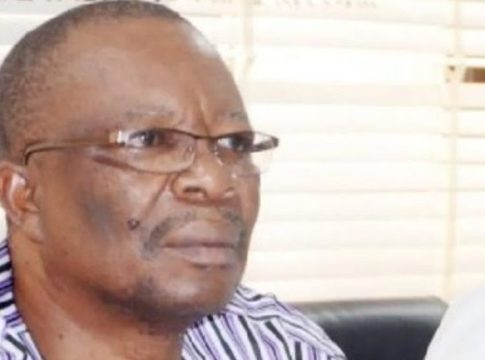The Academic Staff Union of Universities (ASUU) has issued a two-week ultimatum, asserting that they will go on strike if President Bola Tinubu’s government does not address outstanding salary payments to university academics.
ASUU President Emmanuel Osodeke expressed dissatisfaction with the Federal Government’s approach of compensating professors for only four of their seven-and-a-half months’ salaries from 2022, during an interview on Channels Television’s Sunrise Daily on Thursday.
“It is inadequate to pay just four months out of the total seven-and-a-half months of salaries owed,” stated a discontented Osodeke. He pointed out that the work for the duration of the 2022 strike has been completed within the subsequent academic session and professors therefore deserve full payment.
“Universities across Nigeria are operating in the 2023/2024 academic year, meaning by September/October, they will progress to the 2024/2025 academic year. This demonstrates that the tasks we were not remunerated for during the strike have been carried out through additional sacrifices.
Our faculty have foregone time off for the past few years, avoiding vacations to cover the backlog. The coverage of unpaid work has been verified, you can ask the students. Thus, paying less than the full amount does not reflect fair treatment,” he said, emphasizing that the two-week notice for the government commenced on May 13, 2024.
In 2022, prolonged strikes were held by both academic and non-academic unions seeking improvements, including enhanced welfare.
Under the administration of former President Muhammadu Buhari, a ‘no work, no pay policy’ was enacted. However, President Tinubu, in October 2023, authorized the disbursement of part of the withheld salaries.
READ MORE: HELP!! 5.9M Nigerian Children Struggling On Severe Food and Nutritional Deficiencies
While ASUU received payment for four months, non-academic unions like the Senior Staff Association of Nigerian Universities (SSANU) and the Non-Academic Staff Union (NASU) have not been compensated.
These unions staged strikes earlier in March, and the Education Minister Tahir Mamman suggested a possible half-pay consideration for them.
Osodeke is adamant that ASUU members should receive complete payment for the period of the 2022 strike.
Highlighting a point of contention, Osodeke critiqued the government’s spending priorities, noting if the government can sanction road contracts worth trillions, then financial obligations to university workers must be met.
“We have carried out our work, hence we should be paid the remaining salaries. Otherwise, we engage the principle of ‘no pay, no work’,” he declared.
In conclusion, Osodeke expressed concern over the brain drain in academia, attributing it to poor remuneration. He also touched on issues pertaining to the dissolution of Governing Councils by the NUC upon President Tinubu’s directive, leading to unauthorized contracts and recruitions.




